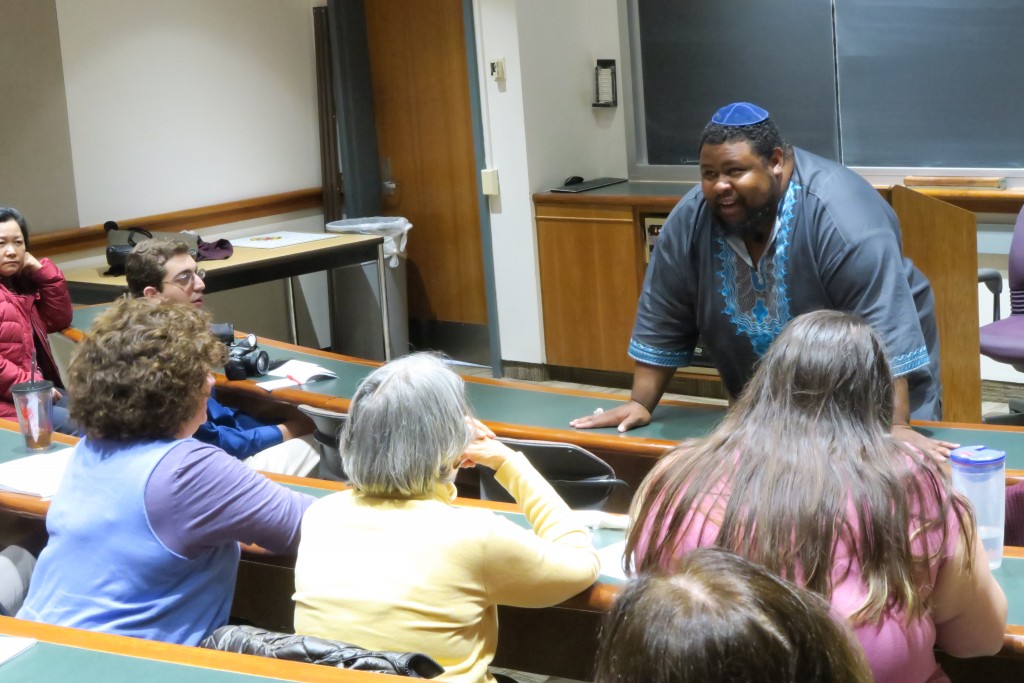By Teresa Johnson
For The Diamondback
A few days into the Jewish holiday of Passover, University of Maryland students had an opportunity to learn about the intersection of Judaism and African-American culture.
The Meyerhoff Center for Jewish Studies hosted Michael Twitty, a food blogger and Judaic studies teacher from Washington, D.C, to speak about bridging the gaps between food and identity from the perspective of being African-American and Jewish.
Hayim Lapin, director of the Meyerhoff Center, said he invited Twitty to the campus because he offered an interesting perspective for a Jewish studies program.
“[He is] someone who crosses all sorts of boundaries and encourages us to talk about all sorts of issues that are important on campus and the wider community,” said Lapin, a professor of Jewish studies and history at this university.
Though Twitty discussed culture and food throughout the event, he linked these topics to broader issues about one’s identity.
Twitty said he receives questions about how he identifies as Jewish and African-American, adding that it’s exhausting to have to justify his identity.
“If you’re in a synagogue setting, think about how it would be to justify your identity in common conversation,” Twitty said. “There are much more comfortable and socially polite ways to address those questions and that curiosity.”
During the event, Twitty responded to student’s questions about specific recipes and how or if they can relate to various religions, including atheist culture. Twitty responded with how food tells the story of different generations, and one’s identity serves as a “toolbox” when it comes to food.
Senior Brittany Spraker, a microbiology and nutrition and food science major, said she learned more about how food aligns with one’s identity, connecting it to her own life.
“The biggest thing I took away was how different culture permeates the world because that’s not a background I come from,” Spraker said. “I’m not Jewish or African-American, but it was really cool to see a perspective like that because I think I’m really interested in food and culture.”
Junior Mary DiMambro, an anthropology and food science major, agreed, saying she’s learned more about her own family through food.
“My family is Italian, and there’s a lot of foods that I’ve been asking my family to tell me more about, including the significance behind them,” DiMambro said.
During the event, Twitty also spoke of his book, The Cooking Gene, which highlights the story of his family through food from Africa and the U.S. Both of these countries represent his journey of his family’s past from slavery to freedom, he said.
The timing of this event aligned with Passover, as well as the 50-year anniversary of Martin Luther King Jr.’s assassination. Twitty said it was completely unintentional, but added that these sorts of intersectionalities can be found everywhere.
“There are all sorts of things going on in terms of the circumstances that are important and symbolic that gives us opportunity to talk about race and identity and difference sameness on campus,” Lapin said.



